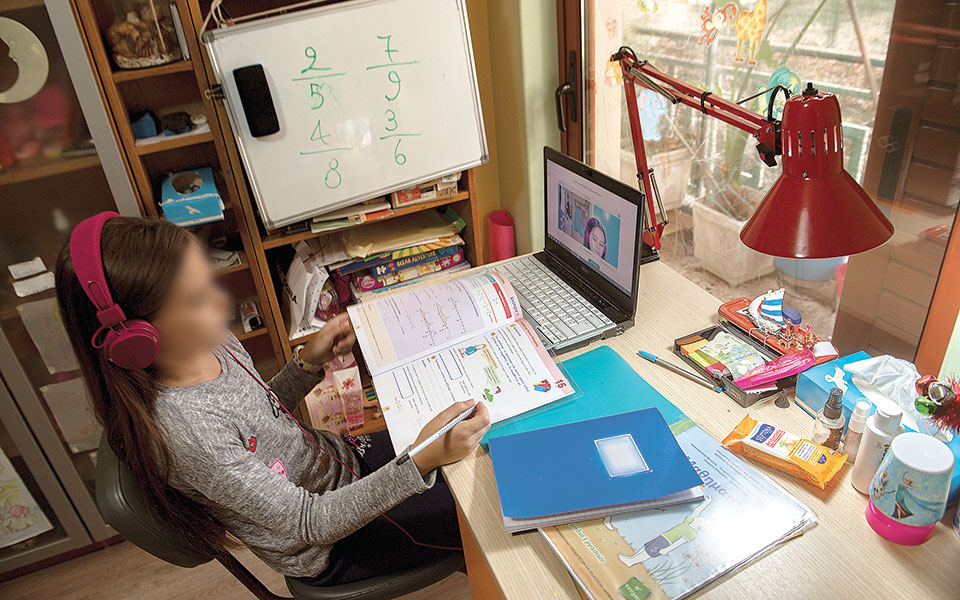As the Internet plays an important role in education, students themselves need to develop skills that will allow them to evaluate digital media and avoid the pitfalls of a world “mainly in front of a screen” (photo SPECIAL NEWS).
Almost an entire school year was spent remotely last year Greek students, due to the quarantine for the coronavirus and the closed ones schoolsThe
The pandemic, as it changed our lives, so will education, according to a World Bank report. In Greece, at the moment, it is sought to breathe the gaps that students have in key chapters of the curriculum of the previous class.
Specifically, in Greece, during the previous school year, schools remained closed for 37 weeks, much less than the 54 weeks in Northern Macedonia, but much longer than the 10 weeks in Croatia.
Greece “keeps pace” with other European countries, such as Italy and Germany, where schools remained closed for 38 weeks, but also Austria, with a closed school and distance learning for 39 weeks. After Northern Macedonia, the top three with the most weeks of distance learning are completed by Turkey (49 weeks) and Azerbaijan (48 weeks). In contrast, after Croatia, schools in Armenia, France and Uzbekistan lost 12 weeks of life.
Today, schools have returned to the dimension of life, with governments trying to help students regain lost ground by covering the curriculum, but also tackling the stress of prolonged distance education and quarantine. The
According to the World Bank report, the pandemic has changed the conditions and data of education and consequently will have to redefine the strategic planning of countries. For example, in the post-pandemic era, education needs to rethink what is worth teaching and what students need to know. And of course all decisions have to be made given that education has moved into the digital age. In the same context, as the Internet plays an important role in education, students themselves need to develop skills that will enable them to evaluate digital media and avoid the pitfalls of a world “especially in front of a screen”.

